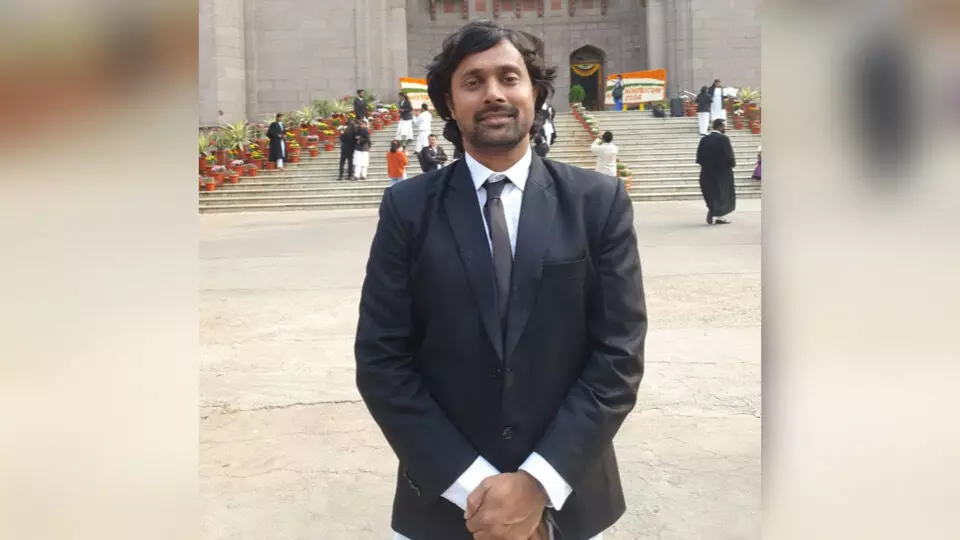Citizen Journalism: Hyderabad expert questions ‘rowdy sheet’ practice by cops, calls for Constitutional review
The term is being used by the Telangana police to make a list of people who they think (although they have not been convicted by any court of law) can cause trouble
By Newsmeter Network
NewsMeter has always been at the forefront of highlighting people's problems, celebrating the common person's success, and encouraging people to live their dreams. We are trying to become a bridge between the government and the people. To take this initiative forward, we are introducing a citizen journalism concept This story is part of the initiative.
Hyderabad: ‘Rowdy’ is a term used in Indian movies to identify a bad guy in society – a troublemaker, a hooligan who harms people for selfish purposes and extorts money for his illegal and lavish living.
A rowdy would likely physically harm people who do not give in to his or her demands and such people are also identified as hitmen (people who take money and cause harm to others).
High Court stayed the Rowdy sheet on both the petitioners. Lakshmikant appeared for the State.
What is a rowdy sheet?
The term ‘habitual offender’ can be used for a person with multiple convictions. But, how is the term a rowdy sheet defined? The term is being used by the Telangana police to make a list of people who they think, mind you, they think (although they have not been convicted by any court of law) can cause trouble.
This gives the police a chance to continuously monitor them, go to their houses at 1 am or 2 am and take their photographs in front of the neighbours and family members and causing immense humiliation. They would also illegally detain people in police stations for hours and direct such people to mark their presence every time the police station gets a new inspector, new ACP or DCP or even SP in the case of other districts.
Innocent until proven guilty
Habitual offenders are persons who must have been convicted at least three times by a court of law. A person who is only accused of a crime ‘is deemed innocent until proven guilty’; the premise of the criminal justice system of any country governed by the rule of law.
The Telangana Police, which still follows the Hyderabad City Police Act 1343 Fasli, unfortunately, despite 75 years of India’s independence with a Constitution in place, continues to use the said act and perform as the judge, jury and executioner.
The rowdy sheet is a colonial practice
The Supreme Court in Maneka Gandhi v. Union of India (1978) held that the right to life includes to live life with dignity.
The concept of opening a rowdy sheet comes from a pre-independence era when the colonial police wanted to keep an eye on every person who was deemed a rebel, to monitor his moves, punish him, humiliate him and ensure they were dealt with in a similar fashion as hardcore criminals.
The Telangana police, who have been using the said rowdy sheet law, particularly from 2014 to 2024, have been operating mindlessly and opening rowdy sheets against senior citizens (for whom I appeared in court on October 3), journalists, teenagers, youngsters and anyone who has even just one FIR pending against them.
Police force to curtail freedom of speech
The aim is to systematically use police force to curtail genuine criticism of government failures, assuming the person will ‘behave correctly’ if his or her name is on the list.
The police manual (which only provides administrative guidelines to police, and is not a law), in which when and how to open rowdy sheet is mentioned under Standing Orders 601, 602 and yet, that is also not followed by the State police who are simply adding names to the list to terrorise people.
Case studies
The Telangana ACB on June 26, 2024, caught red-handed a police inspector in Cyberabad Police limits demanding Rs 3 lakhs to not open a rowdy sheet from a person who was only an accused in a crime.
On October 3, in the Telangana High Court, the Constitutional validity of a rowdy sheet opened against two persons (Vobilishetty Srinivasa Rao who had two pending criminal cases against him) and Bathula Krishna (five pending criminal cases against him) was challenged and the court was surprised to note that in the case of Bathula Krishna, the rowdy sheet was opened without ‘any application of mind’. Also, the court issued notices to the government to respond in four weeks about the Constitutional validity of a rowdy sheet.
The power to curtain a citizen’s freedom and personal liberty is vested only in the court of law and not a police officer, irrespective of rank or position. We are hopeful the court will uphold the rule of law and accordingly strike down all unconstitutional aspects of the Telangana State Police Manual.
Vijay Gopal is a Hyderabad-based RTI activist and lawyer.
The views and opinions expressed in the article are those of the author and do not reflect the official policy or position of NewsMeter.